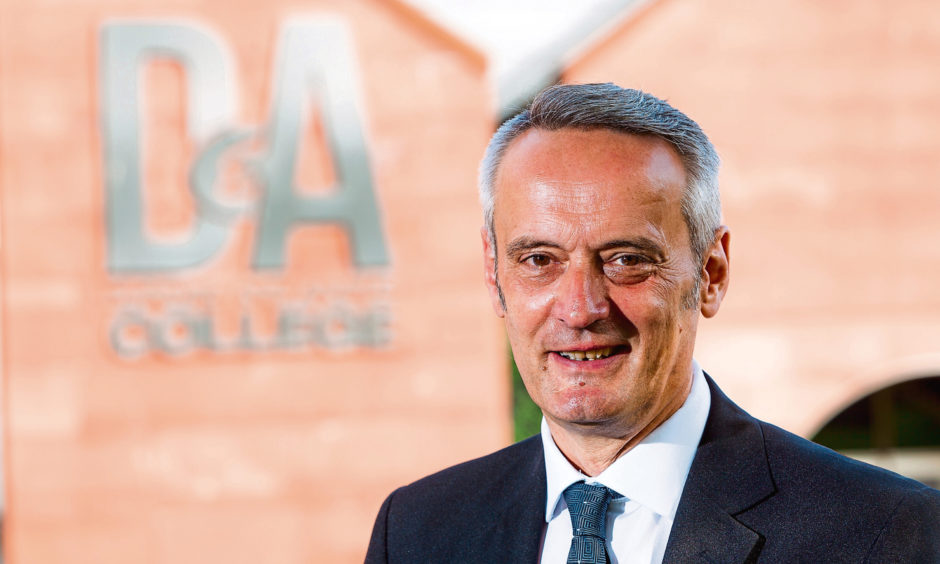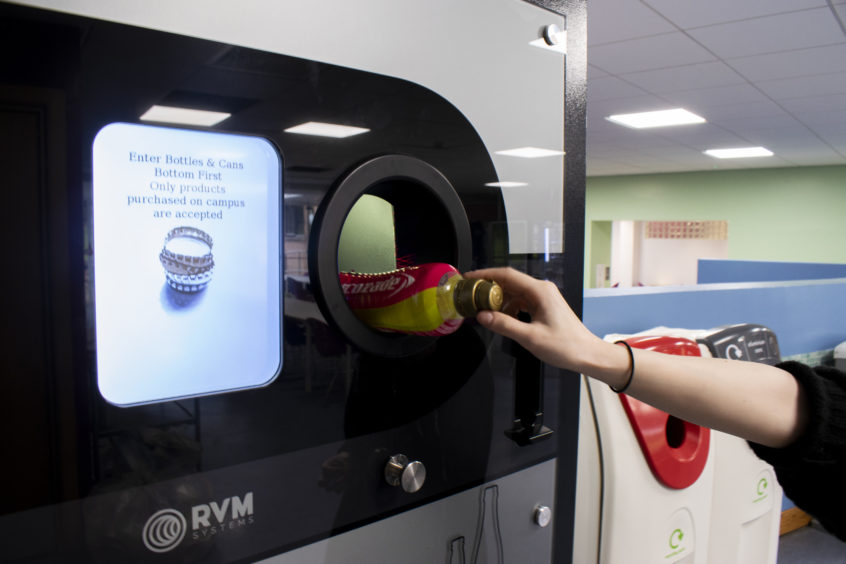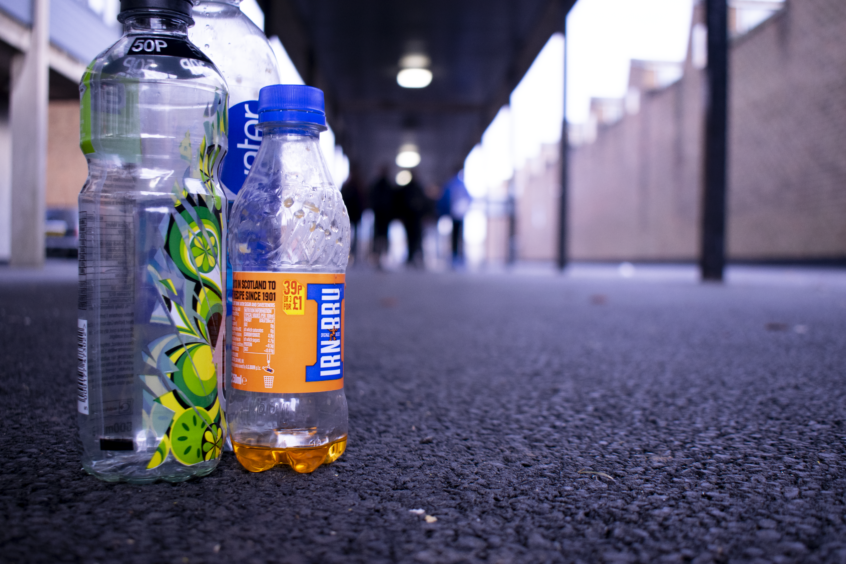Dundee and Angus College is leading the way with efforts to combat climate change, discovers Michael Alexander.
Scotland’s climate change legislation is already leading the world with its target date for net-zero emissions of all greenhouse gases by 2045.
But with environment and economy intrinsically linked, it’s essential that industry and business do their bit too.
One organisation “way ahead of the game” in Tayside is Dundee and Angus College that has recently won three major sustainability awards for its efforts to “go green”.
The first came at the Herald Pioneer awards where the college won the climate neutral category; the second came at the College Development Network awards taking top spot for sustainability, and the third came at the highly prestigious EAUC Green Gown Awards winning the campus health, food and drink category.
The Green Gown Awards are recognition for sustainability successes across the UK for universities and colleges with Dundee and Angus College having previously won a Green Gown Award in the carbon reduction category and a Scottish Public Service Award for commercial partnerships for its biomass project in Arbroath.
Dundee and Angus College Principal Grant Ritchie said the college was leading the way having managed to cut its carbon footprint by almost 60% in the last seven years.
“We have banned single use plastics and do not sell bottled water or use plastic cups across the college,” Mr Ritchie told The Courier.
“We reprocess all food waste to compost for the growing of vegetables, we have rebuilt roads with recycled plastic instead of asphalt, we have a biomass boiler system, harvest rainwater and use solar thermal and ground source heat pumps.
“We also have 13 electric vehicles in our fleet.
“We are way ahead of the game and have cut our carbon footprint by almost 60% in the last seven years.
“We were also the first college in Scotland to be recognised as a Learning for Sustainability College for the way we have used environmental themes in teaching and learning.
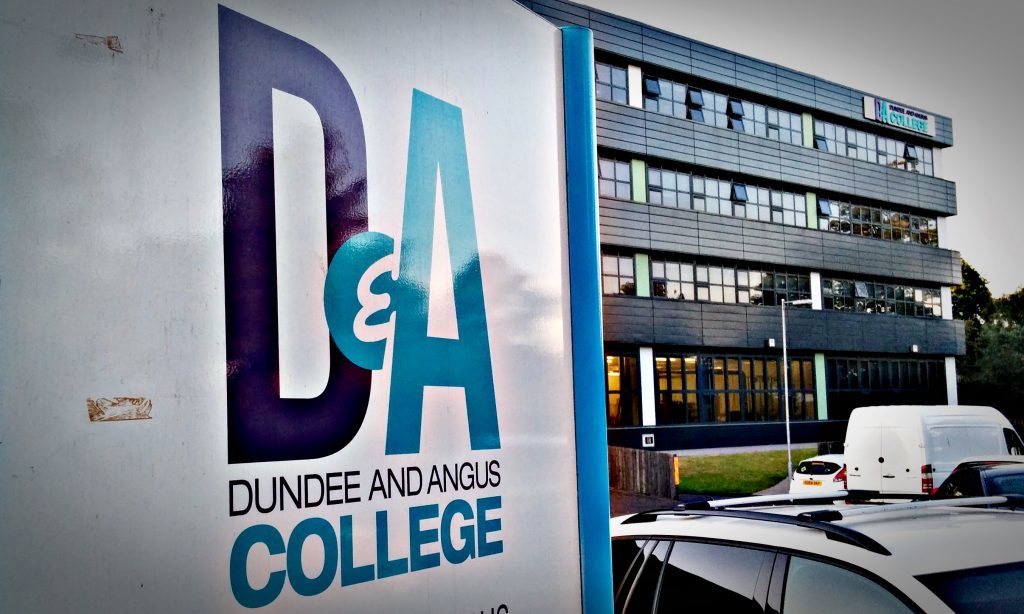
“The awards this year has been a great way to recognise the extraordinary way our estates team in particular have picked up the need to react to climate change.”
Billy Grace, head of estates at Dundee & Angus College, said that with 1000 staff and upwards of 15,000 students, the college’s localised impact on the environment could be substantial.
However, with so many young people passing through its doors, the college was also in the “perfect position” to influence younger generations about the dangers of climate change.
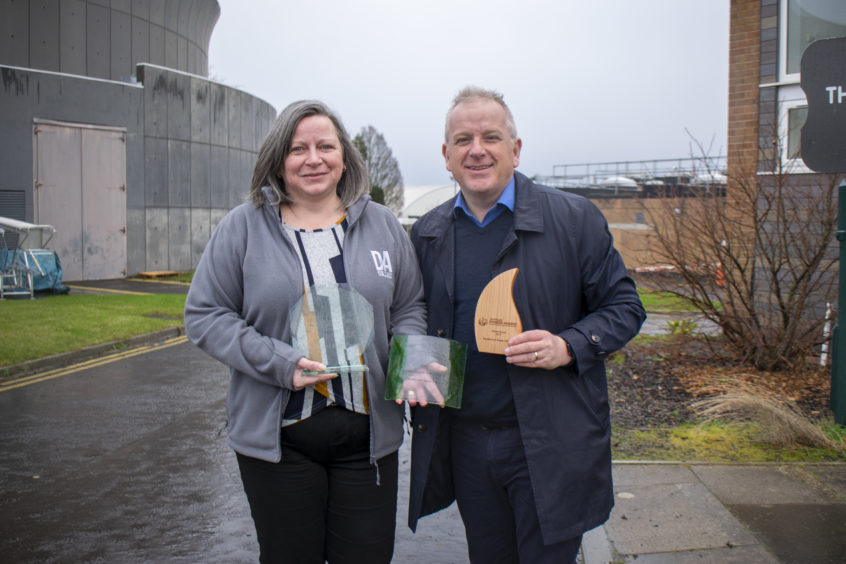
“Dundee and Angus College operates in an area of great poverty and for many of our students it’s a daily struggle to survive,” said Mr Grace.
“That said we have been amazed by the passion among these young people to save the planet.
“As a large organisation with considerable presence in the area we feel it is our responsibility to lead the way in the fight against climate change and to educate as many people as possible.”
Mr Grace said that over the last 10 years, Dundee and Angus College has reduced its carbon emissions by 56%.
This success, he said, has been the result of a sustained awareness campaign and a range of sector leading ‘green’ initiatives that have attracted attention from further education institutions across the UK.
“Behind the battery of statistics has been a firm commitment to radically reduce our carbon footprint and to educate and bring our students and staff body with us on our sustainable journey,” said Mr Grace.
“We have installed a range of renewable technology across our estate including 1.8MW biomass technology at our Arbroath campus, 100kw of solar panels at Kingsway, rainwater harvesting, ground source heat pumps, solar thermal and many others.
“We have also developed a ‘Project Plastic’ initiative which involved creating a video to highlight the catastrophic impact of single use plastic local, nationally and globally to educate students/staff.
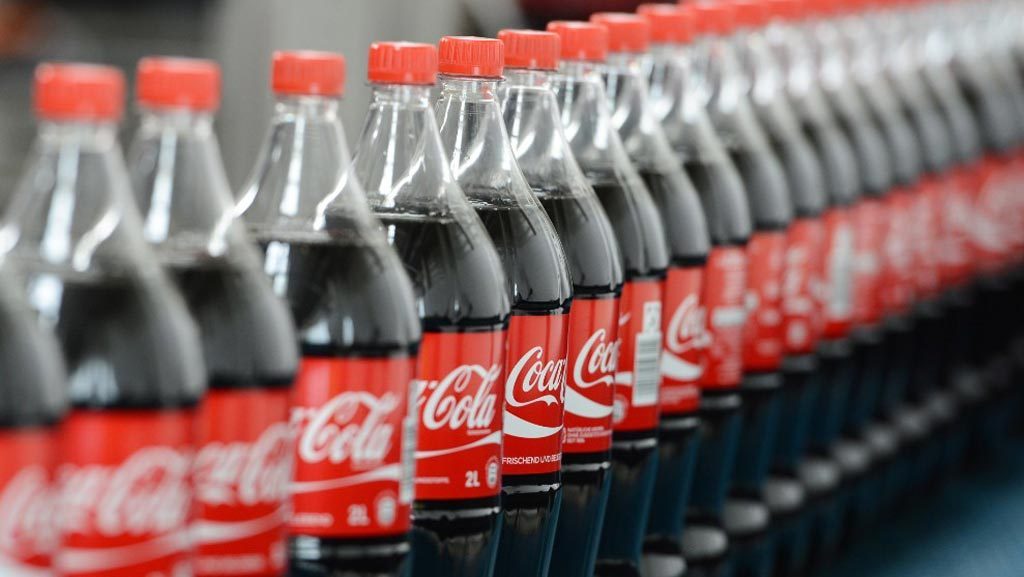
“We also as part of this project stopped providing disposable tea/coffee cups, stopped selling plastic bottled water, handed out free reusable water bottles and installed free cold water stations.”
Mr Grace said that to out this into context, over one academic year the college had removed approximately 140,000 disposable cups from their plastic waste stream which weighed in at approximately 28 tonnes. With plastics responsible for approximately double their own weight in CO2 emissions, this equates to around 56 tonnes of CO2 emissions saved in just nine months.
It is a similar picture with the removal of single use bottled water where the college estimates that they have removed around 20,000 plastic bottles and resulting CO2 from their waste stream.
Other measures introduced by the college include the installation of five recycled plastic road surfaces across the college estate and the introduction of a bottle deposit return scheme well in advance of its formal introduction in 2020.

Dundee and Angus College, in partnership with Learning for Sustainability Scotland, along with College Development Network and EAUC Scotland was also chosen to be the first college in Scotland to participate in a pilot to develop professional learning support in Learning for Sustainability for college teaching staff.
“On a national scale, our actions are inspiring other further education and higher education FE and HE institutions to follow suit,” added Mr Grace.
“We have had a series of enquiries regarding our environmental initiatives, in particular ‘Project Plastic’ which includes the removal of single-use plastic from our canteens and the installation of plastic roads on campus. A number of colleges and universities have replicated our food waste process by also installing ‘Rocket Composters’.”


